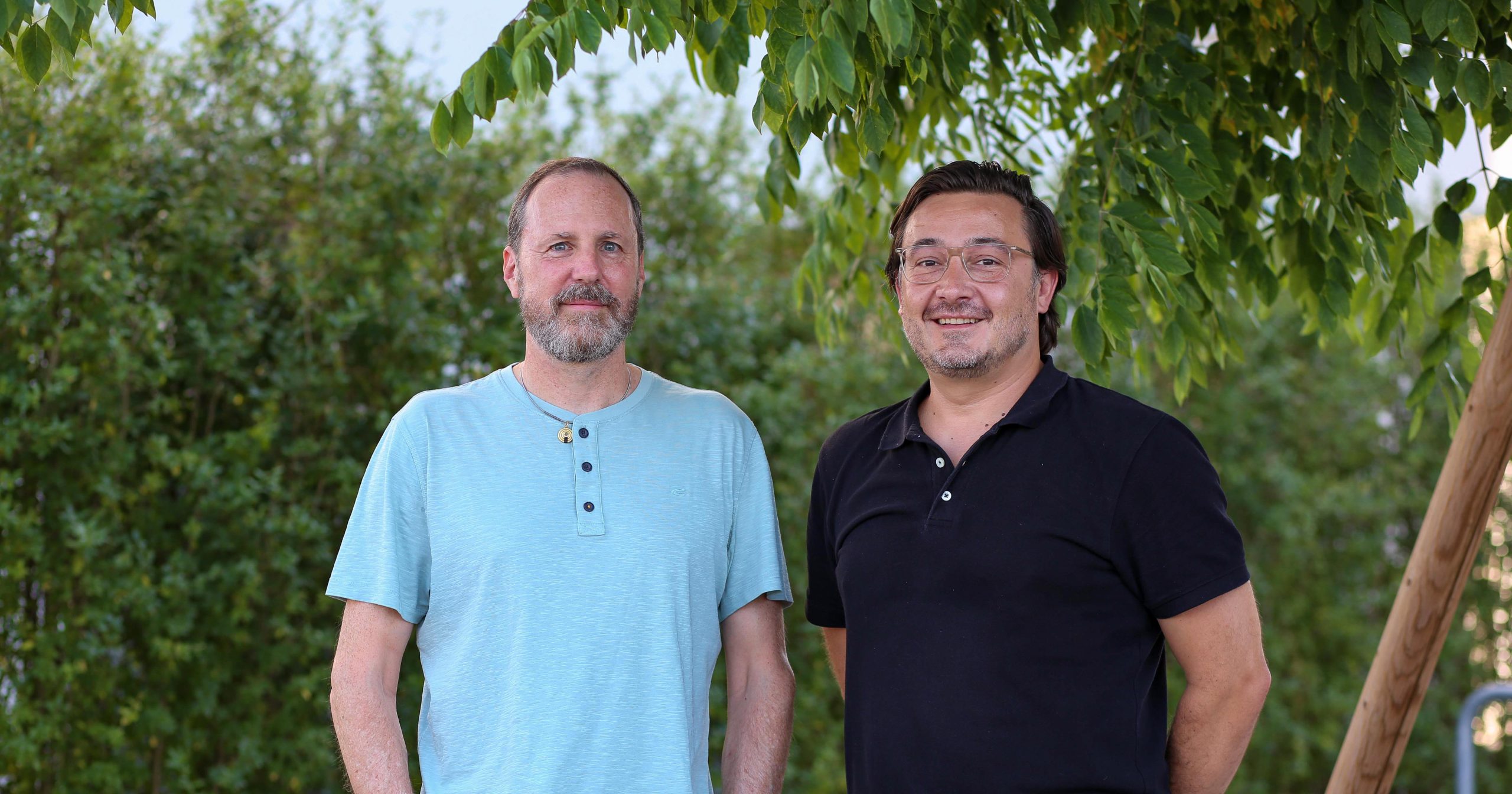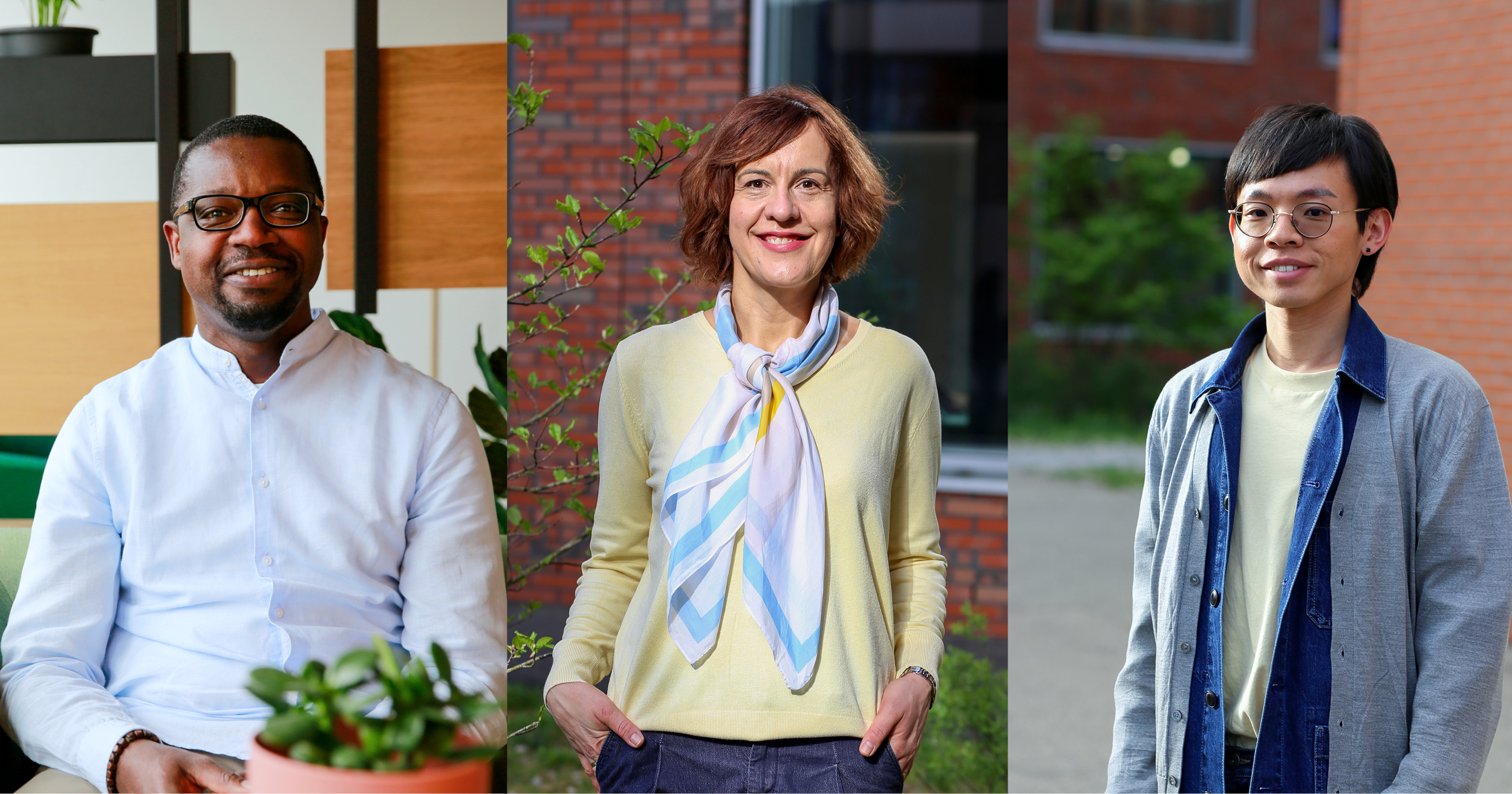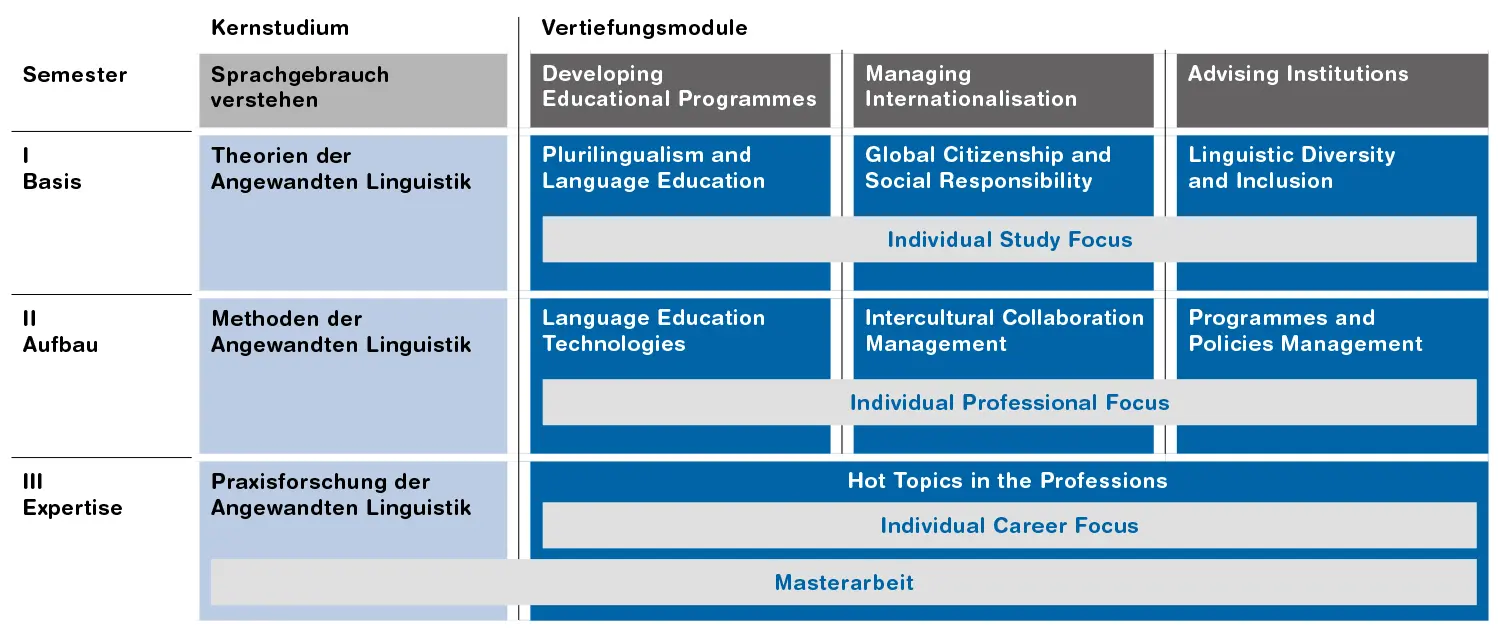Specialisation in Linguistic Diversity Management
In the specialisation in Linguistic Diversity Management, you are equipped with the skills you need for managing linguistic-cultural diversity in institutions, companies and educational establishments. In your future professional roles, you will connect people, organisations and cultures.
During the MA programme, you learn to perceive, promote and utilise linguistic-cultural diversity as a resource. Focus is placed on strategic roles and management tasks in multilingual and multicultural contexts. Participants on the MA programme can choose between three focus areas:
With the Language Education Developer study profile, you design and evaluate training and continuing education courses for individuals, teams and organisations. In doing so, you use and develop digital tools for teaching, learning and testing languages.
With the International Programme Coordinator study profile, you develop, realise and evaluate international programmes in the areas of administration, industry and universities/schools. In doing so, you promote the mobility and global networking of organisations, institutions and their employees.
With the Language and Inclusion Manager study profile, you advise stakeholders from the worlds of politics, administration and business in taking language policy decisions and implementing measures that facilitate integration through language. This also includes the language policies and practices of multinational companies.
You fine-tune your individual profile by participating in a project relevant to professional practice and choosing the topic of your Master’s thesis. This enables you to develop the professional expertise required to perform at an outstanding level in precisely your intended professional field.
Insights into the degree programme
-

Mit dem Master Linguistic Diversity Management die sprachliche und kulturelle Vielfalt nutzen
Unsere Arbeitswelt wird immer multikultureller und mehrsprachiger. Der Master Linguistic Diversity Management vermittelt das Wissen, um als Fach- oder Führungskraft die Vorteile der sprachlichen und ...
-

Linguistic Diversity Management: Drei Studierende, drei Perspektiven
Fodé, Jelena und Chih-Han kommen aus verschiedenen Kulturen. Sie sprechen verschiedene Sprachen. Und sie sind die ersten, die den Master Linguistic Diversity Management studieren. Denn, sie wollen die ...
Career opportunities
Mobility and migration as well as linguistic-cultural diversity are essential features of modern societies. They present wide-ranging challenges and potential for the design of communicative processes in the areas of society, work and education. You deal with these challenges and areas of potential as part of the MA programme. You learn to support people, organisations and communities in such a way that they are able to communicate and act across linguistic-cultural boundaries in an effective and constructive manner.
Following the MA programme, you will design and coordinate international programmes in a managerial capacity. You will advise stakeholders from the realms of politics, administration and business in taking language policy decisions and implementing measures to promote linguistic-cultural integration. Alternatively, you might find yourself in a role that sees you develop new educational methods and materials as well as course concepts and tests, for example.
You will work in educational institutions, international companies, foundations and public organisations, as well as regional or national centres for internationalisation, inclusion, integration and social issues.
The MA in Applied Linguistics with a specialisation in Linguistic Diversity Management gives you the chance to enter these professions directly.
Key information

The research-based core modules (14 ECTS credits) form part of the MA programme for all specialisations. They focus on principles and methods of applied linguistics that enable you to reflect on the challenges of professional practice.
In the specialisation modules (56 ECTS credits), you deal with academic subjects such as language acquisition, multilingualism and plurilingualism, language and integration, language policies, global citizenship and global social responsibility. In your project assignment, you draw on this knowledge to solve issues encountered in a professional field of activity, for example at integration centres, during the development of language tests or within the framework of international relations.
Finally, in your Master's thesis (20 ECTS credits), you then individually delve into a topic that is so closely related to your desired professional role that you will be able to embark on your career with a strong specialised profile and sound network.
All important information about the core modules and other specialisations within the MA programme can be found on the page MA in Language and Communication.
Part-time study
You can choose to complete the MA in Applied Linguistics on either a full-time or part-time basis. The full-time programme is designed to be completed over three semesters. A part-time programme lasts between four and six semesters and can be applied for in writing via the academic office both prior to the commencement of the study programme and during your studies (subject to certain conditions).
Admission
Prior to starting your studies, you have the opportunity to complete an online bridging course. This self-study course allows you to prepare for the Master’s degree programme with selected reading material and translation exercises. You will be provided with further information after submitting your application.
Admission to the MA in Applied Linguistics with a specialisation in Linguistic Diversity Management is open to individuals who meet the following requirements:
- Bachelor’s degree
To be admitted to the Master’s degree programme, you must hold a Bachelor’s degree or an equivalent tertiary level qualification. - Professional aptitude test
The oral professional aptitude test is designed to assess your potential for studying at a Master’s level. To be admitted to the programme, you must have intercultural skills as well as the ability to reflect on multilingual and multicultural contexts.
Information sheet on the professional aptitude test (in German) - Language competence (English, German and an additional language)
To be admitted to the programme, you must have German and English language competence of at least C1 level as well as knowledge of an additional language of at least B2 level. You will have to provide evidence in the form of language certificates, study records or job references. If you are unable to provide evidence of this kind, you will be required to take an oral language test at the ZHAW. - Practical experience
To be admitted to the programme, you must provide evidence of relevant professional experience, the completion of a full-time internship of at least three months in the context of linguistic diversity management or the completion of a semester abroad lasting at least one semester. Evidence of professional experience, the completion of an internship or a study record must be included with the application form. If you do not yet fulfil this requirement at the time you submit your application, you can, on request, supply the necessary evidence at the start of your studies.
Please note that individuals who have been excluded from a Master’s degree programme at other universities that covers equivalent content can no longer be admitted to the corresponding specialisation at the ZHAW.
Dates and deadlines
Applying in good time will allow you to optimally plan and prepare for your studies. On request, applications submitted at a later date may be considered. Please contact the degree programme office in this regard directly by sending an e-mail to master.linguistik@zhaw.ch.
| Programme start: Spring semester 2026 | |
|---|---|
| Deadline for applications 1 | 15 May 2025 |
| Professional aptitude test 1 | 30 June – 4 July 2025 |
| Deadline for applications 2 | 30 September 2025 |
| Professional aptitude test 2 | 27 October – 7 November 2025 |
